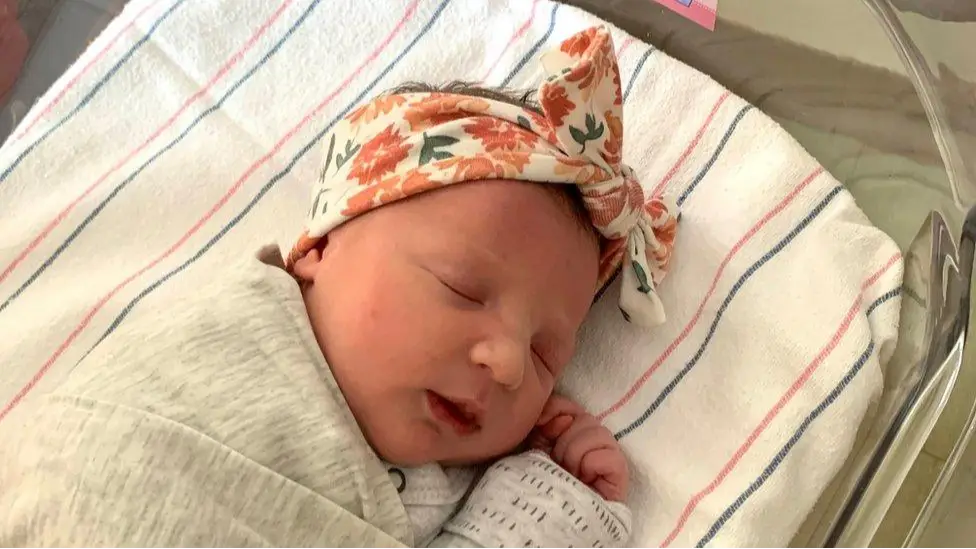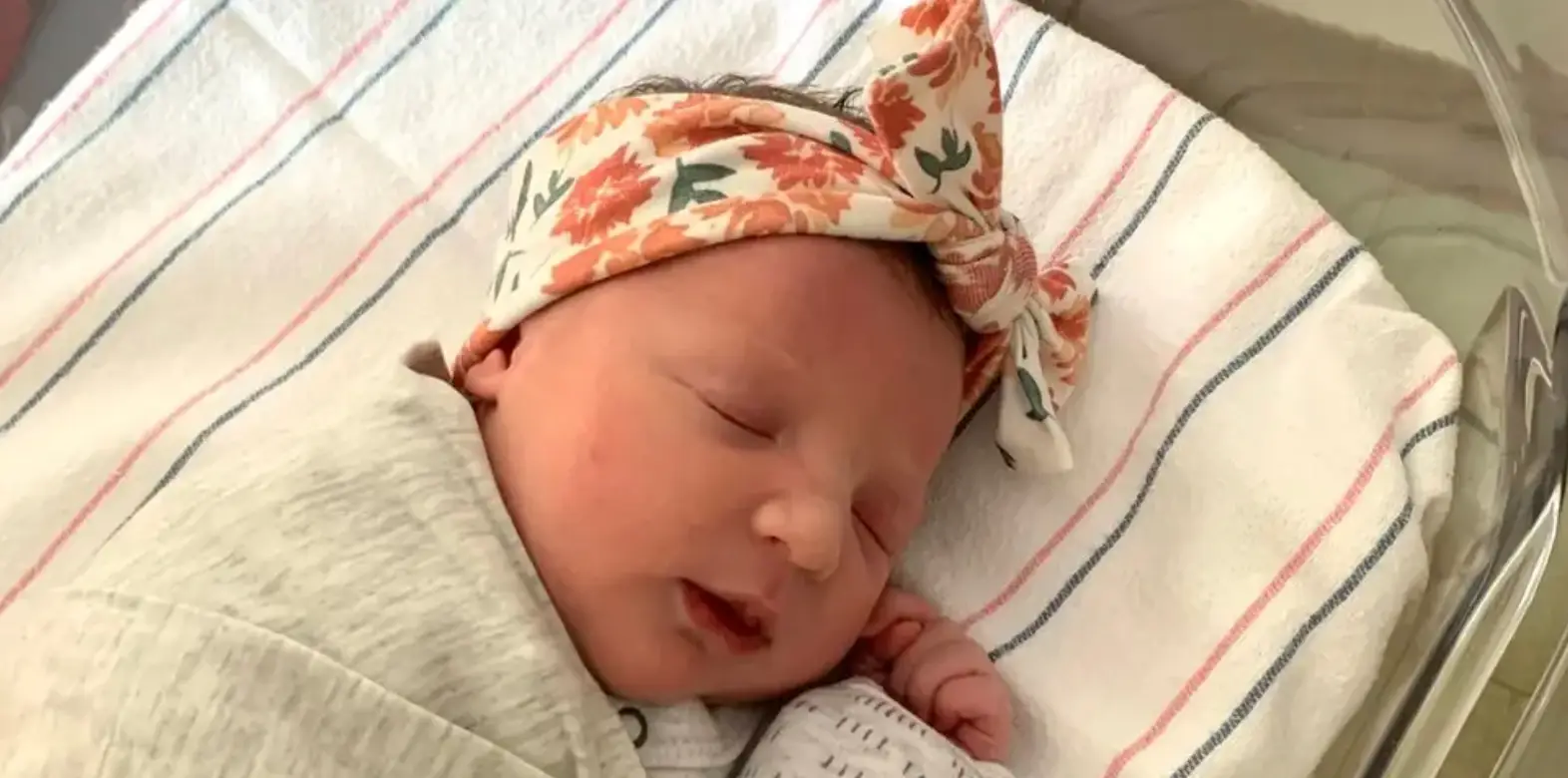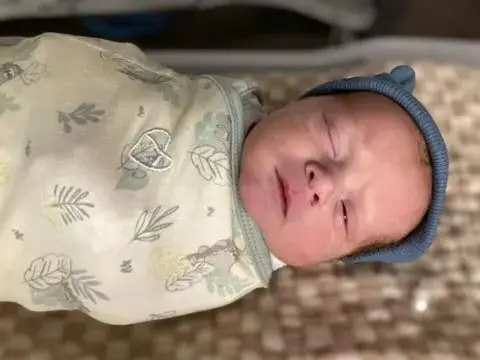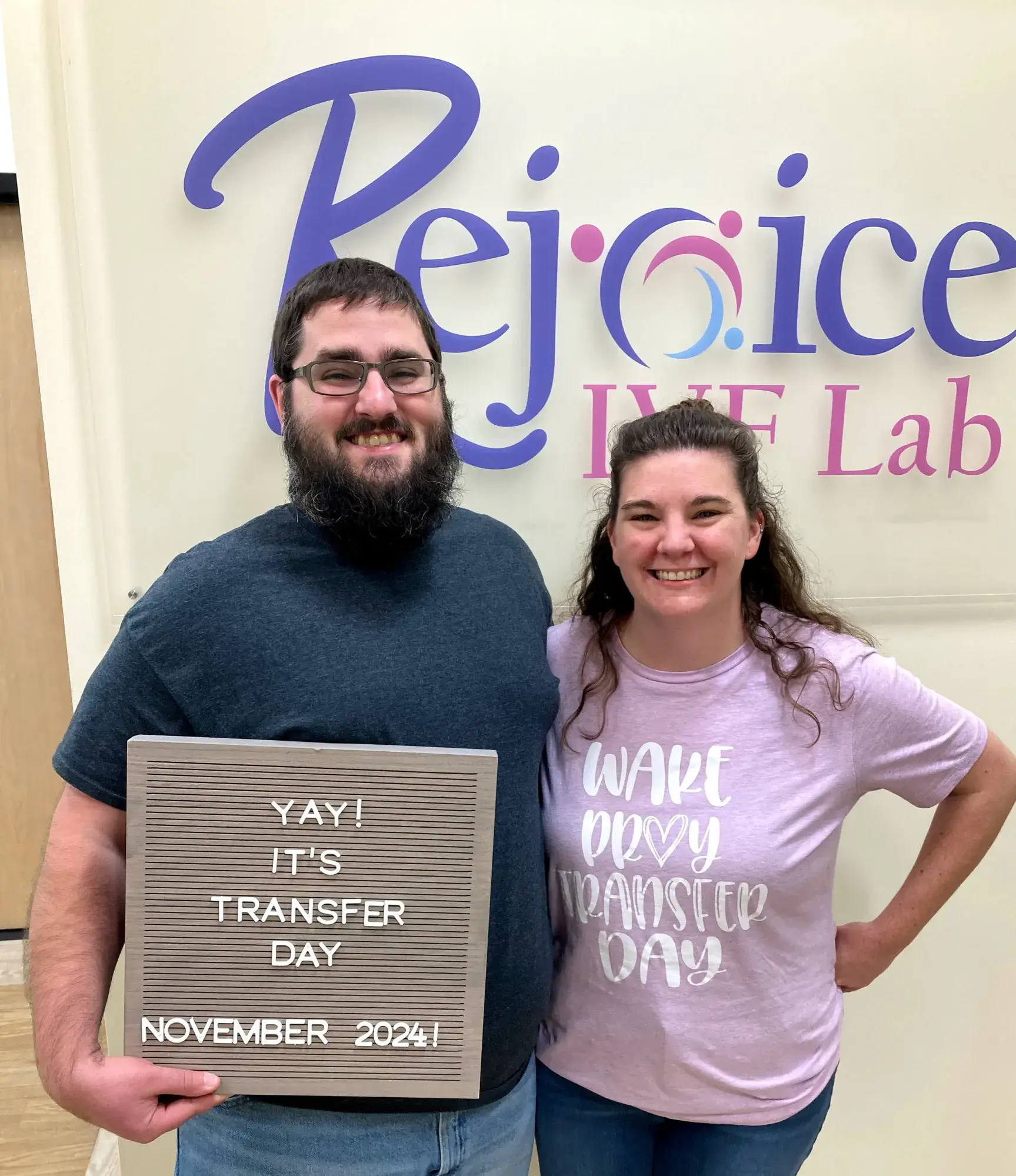
If this doesn't scramble your brain, then nothing will, as a newborn boy has snatched the title of 'world's oldest baby' from a girl born in 2020.
Molly Gibson was welcomed into the world in October 2020, in Tennessee, and she had taken the title from her sister Emma, who was born in November 2017.
Tina and Ben Gibson were parents to the two record-breakers until Thaddeus Daniel Pierce came along last month.
Tina told CNN after Molly's birth: “With Emma, we were just so smitten to have a baby. With Molly, we’re the same way. It’s just kind of funny - here we go again with another world record.”
Advert
Born during the pandemic, Tina joked about Molly: “She’s definitely been a little spark of joy for 2020.

“Every single day, my husband and I talk about it. We’re always like, ‘Can you believe we have not one little girl, but two little girls? Can you believe we’re parents to multiple children?’”
So what makes these babies so unusual, and why are some people questioning the ethics of it?
Molly, Emma and Thaddeus are all the result of embryo adoption, where couples who are struggling to conceive turn to a charity for help.
Instead of adopting a baby or child who has already been born, the couple can 'adopt' an embryo to be implanted instead.
Many couples who have gone through IVF find that they have more eggs than they need, and in the US, extra embryos can be stored indefinitely, unlike in the UK which has a maximum of 55 years.
This means in the US, Emma's embryo had been frozen for 24 years before she was born, Molly's for 27, and Thaddeus has now claimed the record with his embryo having been frozen a whopping 30 years earlier.

Emma and Molly came from the same couple, so they are genetic sisters.
Thaddeus was born to Lindsey, 35, and Tim Pierce, 34, in Ohio, after they turned to the Nightlight Christian Adoptions 'Snowflakes' programme for help, and their 'Open Hearts' scheme.
The scheme aims to find parents for older 'hard to place' embryos.
Linda Archerd, 62, has a 30-year-old daughter from the embryos which were made for her and her now ex-husband.
She didn't want the three remaining embryos to be destroyed, so she decided to donate them to an adoption charity; however, because they had been frozen for so long, she struggled to find a charity to take them.

New mum Lindsey told the MIT Technology Review that the birth of Thaddeus was like 'a sci-fi movie'.
She added it was 'wild', exclaiming: “We didn’t know they froze embryos that long ago.”
Lindsey admitted: “We just wanted to have a baby.”
They had been struggling to conceive for seven years before turning to the charity, and the organisations hope that the schemes will help to reduce the number of embryos kept frozen in storage.